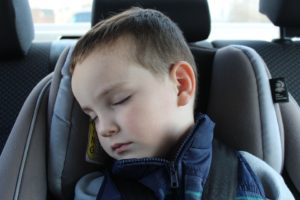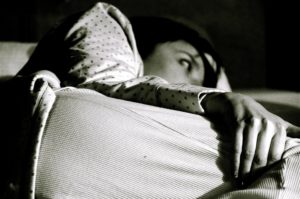Sleep is something everyone needs and must develop discipline for. It is how we recuperate and tell our bodies to shut everything down and recover. It is like a mobile phone getting recharged. Human beings and animals alike need to get some sleep.
In the U.S., more than 40 million individuals experience insomnia annually. Interestingly, more women suffer from the discomfort than men. Symptoms are nearly the same and how to manage insomnia can be very standard for everyone. The causes though maybe very different between different individuals.
Insomnia in children
 Kids today suffer from insomnia as well. Some children, especially who are in school have a hard time getting enough sleep. Factors vary but the bottomline is that they suffer with a disrupted sleeping pattern just like adults do.
Kids today suffer from insomnia as well. Some children, especially who are in school have a hard time getting enough sleep. Factors vary but the bottomline is that they suffer with a disrupted sleeping pattern just like adults do.
Stress factors in children leading to lack of sleep can be detrimental to their development. When the body is tired, it uses up more nutrients and drains the individual. Without proper rest, their performance in school may decline. Parents should talk to their children since stress can be from being bullied, under-achievement, household issues, and peer pressure. These stress factors in many children can easily lead to depression, and can make the insomnia that more harder to manage. Real issues arise when they don’t get the attention and the management that they need. Some symptoms are:
- Irritability or mood swings
- Hyperactivity
- Sleeps more during the day
- Memory impairment
- Getting into more accidents
A lot of it can be associated to habits that are not ideal and may be less challenging to correct. Insomnia secondary to behavioral issues normally doesn’t need pharmacological interventions. Parents should just call their kids out on the misbehaviours.
Depression on the other is a real problem that needs to get addressed immediately when spotted. These are bottled up feelings and thoughts that make it hard for the kids to get enough rest. Whether we believe it or not, children do worry and they need to be addressed.
Other factors that also affect the sleep of children that leads to insomnia are poor living conditions. Improper ventilation and lack of comfortable beddings. The environment can also add to the problem like noise, warm or cold and lighting conditions in the bedroom.
 Social activities that lead to insomnia an also be a factor for children. Let’s face it, how can kids sleep if they have unlimited access to distractions like game consoles, mobile phones and tablets, and the internet. These are very powerful factors that drive their personality and their social endeavours. Social media channels and streaming websites keep children preoccupied. Role playing games that can be turned into a big social event among friends is now a trend. It can also be turned into a whole new culture for kids today. Role playing games has also taken over how kids interact. They can meet virtual friends from playing online games. It takes up a lot of their hours and what’s worse, some kids cut school just to get to play. According to some studies, when a preschooler plays video games after 7 p.m., 28% would have a hard time of sleeping through most nights of the week. (http://healthland.time.com/2011/06/27/tv-video-games-at-night-may-cause-sleep-problems-in-kids/).
Social activities that lead to insomnia an also be a factor for children. Let’s face it, how can kids sleep if they have unlimited access to distractions like game consoles, mobile phones and tablets, and the internet. These are very powerful factors that drive their personality and their social endeavours. Social media channels and streaming websites keep children preoccupied. Role playing games that can be turned into a big social event among friends is now a trend. It can also be turned into a whole new culture for kids today. Role playing games has also taken over how kids interact. They can meet virtual friends from playing online games. It takes up a lot of their hours and what’s worse, some kids cut school just to get to play. According to some studies, when a preschooler plays video games after 7 p.m., 28% would have a hard time of sleeping through most nights of the week. (http://healthland.time.com/2011/06/27/tv-video-games-at-night-may-cause-sleep-problems-in-kids/).
Insomnia in working adults
 The need to sleep doesn’t really change as we grow older. It is still as important as it is needed when we’re in our adolescence. The causes though maybe significantly different from the childhood stage. Working adults experience:
The need to sleep doesn’t really change as we grow older. It is still as important as it is needed when we’re in our adolescence. The causes though maybe significantly different from the childhood stage. Working adults experience:
- Work pressure
- Financial problems
- More bouts of jet-lag
- Relationship issues
- Having kids of their own
- Depression
- Developing lifestyle-related diseases
- Alcoholism
- Drug Abuse
- Ingestion of increased amounts of caffeine
All of these lead to unhealthy sleeping patterns that may also evolve into other health conditions. Since adults have to make a living, some take jobs in odd hours, lifestyle-changing occupations and due to hardships in the society, others resort on taking different opportunities to make day-to-day expenses work for their family or themselves. The stress caused by trying to make more money, causes working adults to use excessive amounts of caffeine and opioids to get by and cope with the demands of their occupation which leads to abnormal sleep patterns.
Businesses loses more than $90 billion annually in reduced productivity, office related accidents and errors. (http://workplacementalhealth.org/Mental-Health-Topics/Insomnia) This number is staggering and is clearly a growing issue that needs to managed and addressed properly.
Insomnia in the elderly
 As people get older, the trouble in the sleep habits and pattern is more on tied to the conditions that they accumulate through the years. There is pain, arthritis, high blood pressure, diabetes, and prolonged use of caffeine and prohibited drugs.
As people get older, the trouble in the sleep habits and pattern is more on tied to the conditions that they accumulate through the years. There is pain, arthritis, high blood pressure, diabetes, and prolonged use of caffeine and prohibited drugs.
The body deteriorates and functions are not fully recovered on how it was as so many factors drive the body to restore it self, only the liver has that capability. The elderly suffer as they get up early in the day, not get activity throughout the day, doesn’t get enough sunlight since they stay at home most of the time and these lead to ineffective sleep pattern as they would get up in the middle of the night and struggles to get them back to sleep.
In elderly women, another cause is when their menstrual cycles stop (menopause). They would get discomforting night sweats and hot flashes that can interrupt their sleep.
The stress epidemiology also is different. This is usually comes from a death of a partner, abandonment of the family, being transferred to a nursing home all causes emotional and psychological stress that in return develops insomnia.
Medications can also affect the elderly and their sleep patterns. Assorted accumulated conditions have different effects in one’s body and the pharmacologic interventions to go along with it takes it toll in the elderly. Diuretics that make the elderly urinate frequently can pose an issue with their sleep. Heart ailments prompt geriatric patients to take diuretics to keep the body in check. Edema is also associated with this condition and one of the medications that help manage it are diuretics. Getting up in the middle of the night just to urinate can be harmful to the sleep habits of an elderly.
Increase amounts of caffeine through the years in the elderly can also add to their inability to keep a good sleeping habit. They ingest coffee more since the body can’t produce energy as much as it used to. Coffee can also be a soothing drink for the older people to calm then from stress and challenges everyday.
 Insomnia has to be taken seriously. Since our bodies can’t naturally regenerate and recovery diminishes are we grow older, sleep is an essential activity that needs to be consistently taken action of. It helps us to recharge and cope through the stress taken physically, emotionally and psychologically. Consult a healthcare professional or a nurse, to get some advice on how you can manage your sleeping habits independently. You can also go to your nearest sleep management care facility to get an quick evaluation and intervention as needed. Regular physical exercises can also help regulate the body and help out in improving sleeping habits. And of course, proper nutrition and responsible food intake reduces the risks of getting conditions that may lead to insomnia.
Insomnia has to be taken seriously. Since our bodies can’t naturally regenerate and recovery diminishes are we grow older, sleep is an essential activity that needs to be consistently taken action of. It helps us to recharge and cope through the stress taken physically, emotionally and psychologically. Consult a healthcare professional or a nurse, to get some advice on how you can manage your sleeping habits independently. You can also go to your nearest sleep management care facility to get an quick evaluation and intervention as needed. Regular physical exercises can also help regulate the body and help out in improving sleeping habits. And of course, proper nutrition and responsible food intake reduces the risks of getting conditions that may lead to insomnia.
